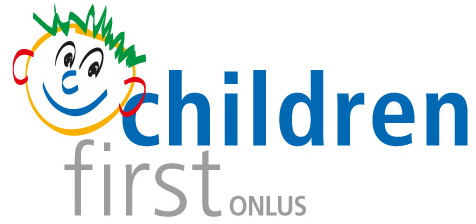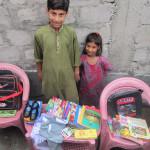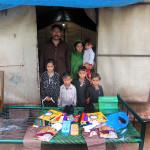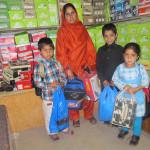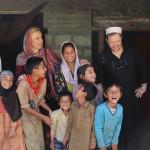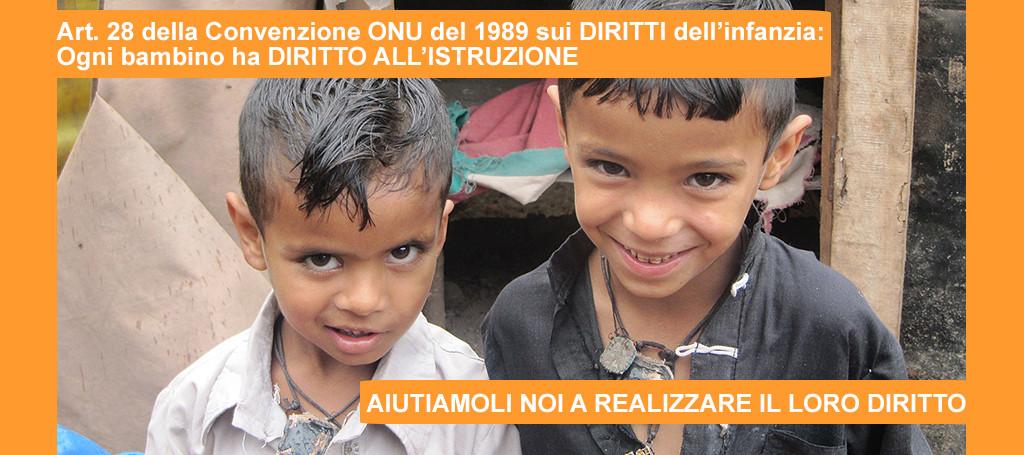
CHILDREN SCHOOL SUPPORT (CSS) Taking on school expenses for “street children” in Pakistan
Pakistan is the sixth most populous country in the world, but when it comes to the education of its youth it has one of the worst records in the world (UNICEF, report 2013). Approximately 7.3 million children (!) between the ages of 6 and 11 do not go to school. The country is second only to Nigeria in the number of children of that age group who do not go to school, and instead, work or are on the streets (UNESCO, 2011 report). Pakistani females, in particular, are those who have least access to schools. 56% of over 10 year-old females in the country are illiterate. That means that more than half of girls and women cannot read or write, compared to 31% of the male population (United Nations, 2013 report).
Since 2011, the charity CHILDREN FIRST has implemented the project „CHILDREN SCHOOL SUPPORT”, which helps the poorest children in the Muzaffarabad, Azad Jammu and Kashmir areas to be able to attend their closest local or private school, despite the great poverty in which they live. We regularly pay TUITION FEES for the poorest children. We supply them with UNIFORMS, BAGS, BOOKS AND EXERCISE BOOKS, PENCILS AND CRAYONS. Very often we pay for new CLOTHING and a PAIR OF GOOD SHOES to go to school in.
The great poverty of large families who live in tents and shacks with sick or dead fathers, and mothers with no income for themselves or their family to survive, very often have children who have to work as cleaners or collect recyclable waste in the streets or beg instead of receiving a basic education to escape the trap of poverty.
These parents would like their children to have access to education, but how can they afford to pay school fees (although minimal) and to buy books and notebooks for lessons if they cannot even buy food for themselves?
Although almost all Pakistani families living in extreme poverty in rural areas understand the importance of education for their sons and daughters and are well aware that school education is the only real way out of poverty, for many children education is still just a dream. The situation just gets worse for families in need when the father of the family dies or is seriously ill. Moreover, because of tradition and religion, it is commonplace that from one day to the next, girls are no longer sent to school because after being betrothed they must stay at home until their wedding which takes place when they are 17 or 18 years old.
All children in the world, even the poorest, should have the right to have an education, not just to better their intellectual growth, but also because it is the best possible remedy for poverty. Not having an education is detrimental to democracy and, therefore, is detrimental to peace and international security, favouring terrorism-which is often a direct result of ignorance.
